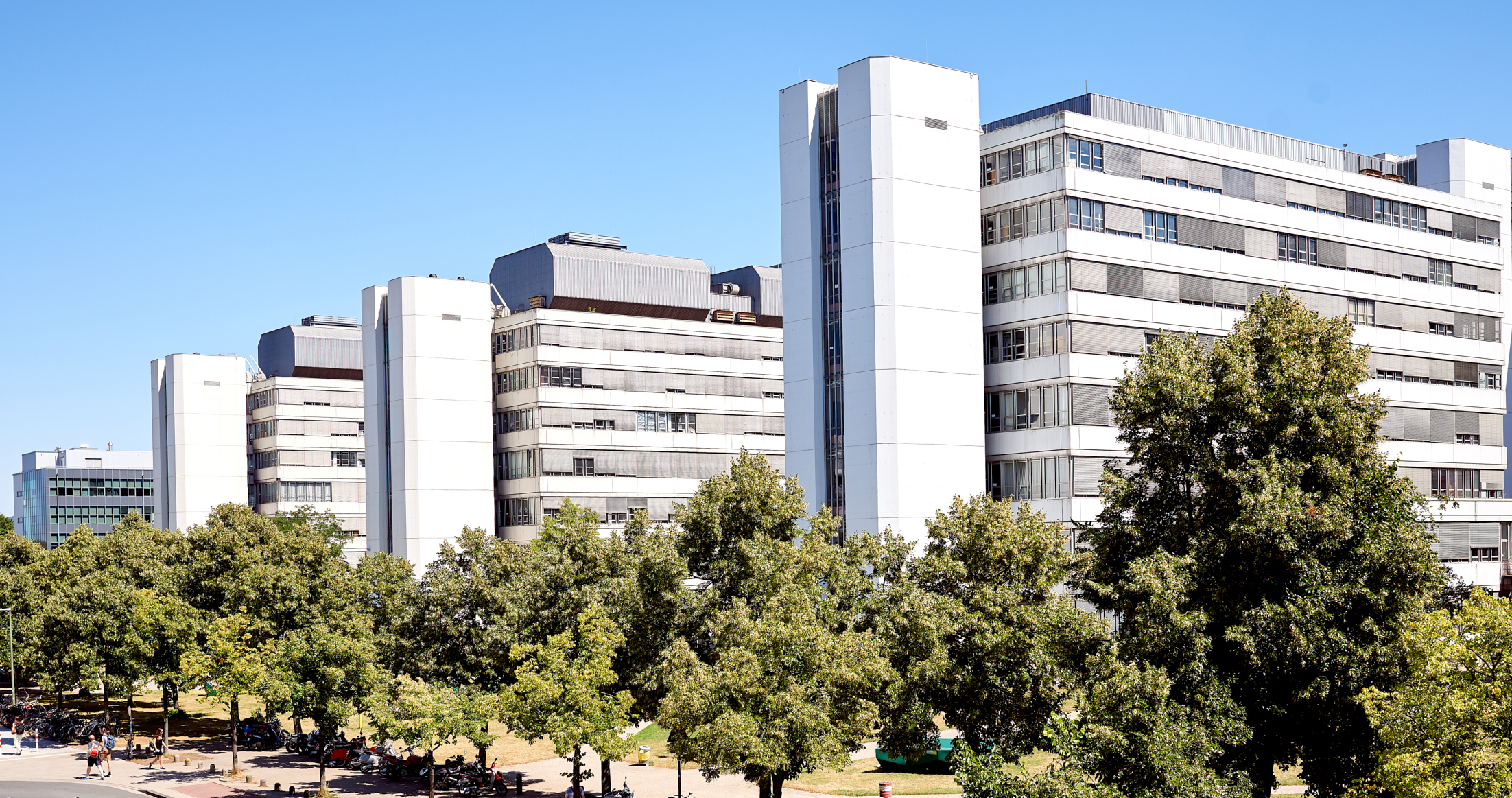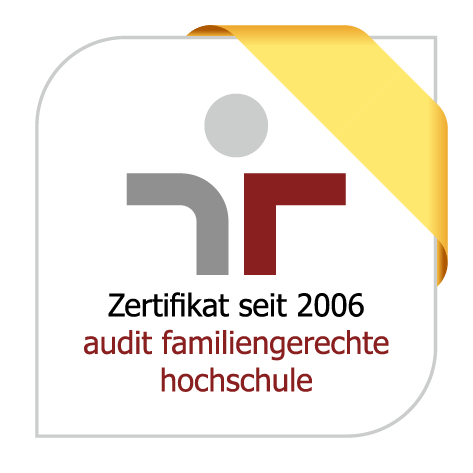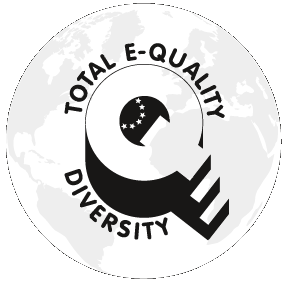
As part of the qualification programme "Medical & Clinician Scientist Kolleg: Outpatient and trans-sectoral care of people with Disabilities and Chronic Diseases (MeCS-Kol)", the following position is available in the working group Interactive Robotics in Medicine and Care of the Medical School OWL: 
Research Position
ID: Wiss25398
- starting: as soon as possible
- Vollzeit part-time also possible
- salary according to Remuneration level 13 TV-L
- befristet
The “Medical & Clinician Scientist Kolleg (MeCS-Kol)”, funded by the Federal Ministry of Research, Technology and Space (BMFTR), offers you the unique opportunity to become part of an innovative and exciting research programme on the topic of "Outpatient and trans-sectoral care for people with Disabilities and Chronic Diseases".
The programme offers doctoral students, postdocs and researching physicians who want to develop their scientific skills in an interdisciplinary environment the opportunity to network with specialist colleagues from different disciplines through joint (healthcare) research projects, events and workshops. As an early career researcher you will have the opportunity to collaborate transdisciplinary between medical and clinician scientists. You will promote your career by participating in specific (further) qualification and mentoring programmes for transsectoral and outpatient (healthcare) research.
The project is located in pillar 3 of the “MeCS-Kol”. Pillar 3 focusses on the development and use of assistance systems for people with disabilities and chronic illnesses.
To support our interdisciplinary research project, we are looking for a committed scientist with sound knowledge of computer science, robotics or related disciplines. The aim of the project is to develop a low-barrier application for familiarisation with a personalisable interactive robot in a domestic or medical context. Individual interaction preferences are to be used for further communication. Interaction scenarios will be developed to support the assessment of emotional development based on SEED diagnostics.
For the development of the application you will cooperate with people with cognitive impairments and doctors in a participatory manner in order to create a needs-based, inclusive and user-friendly solution.
The position gives you the opportunity to play an active role in shaping both the pioneering field of research and the “MeCS-Kol” and create optimal conditions for an outstanding scientific career.
The programme offers doctoral students, postdocs and researching physicians who want to develop their scientific skills in an interdisciplinary environment the opportunity to network with specialist colleagues from different disciplines through joint (healthcare) research projects, events and workshops. As an early career researcher you will have the opportunity to collaborate transdisciplinary between medical and clinician scientists. You will promote your career by participating in specific (further) qualification and mentoring programmes for transsectoral and outpatient (healthcare) research.
The project is located in pillar 3 of the “MeCS-Kol”. Pillar 3 focusses on the development and use of assistance systems for people with disabilities and chronic illnesses.
To support our interdisciplinary research project, we are looking for a committed scientist with sound knowledge of computer science, robotics or related disciplines. The aim of the project is to develop a low-barrier application for familiarisation with a personalisable interactive robot in a domestic or medical context. Individual interaction preferences are to be used for further communication. Interaction scenarios will be developed to support the assessment of emotional development based on SEED diagnostics.
For the development of the application you will cooperate with people with cognitive impairments and doctors in a participatory manner in order to create a needs-based, inclusive and user-friendly solution.
The position gives you the opportunity to play an active role in shaping both the pioneering field of research and the “MeCS-Kol” and create optimal conditions for an outstanding scientific career.
Your Tasks
Planning and implementation of human-robot interaction studies as part of the “MeCS-Kol” in close collaboration with a multidisciplinary team. This includes in particular:
- development of an XR application for interaction with a robot simulation
- design of an intuitive and low-barrier user interface for the personalisation of human-robot interaction
- participatory development of interaction scenarios for emotional development diagnostics
- analysing the data, interpreting the results and preparing publications
- presenting scientific data in seminars (within and outside the research group) and at conferences
- participation in the planning and writing of research proposals
- supervision of technical staff, doctoral students and student assistants
- organisational tasks
Employment is conducive to scientific qualification.
We offer
- salary according to Remuneration level 13 TV-L
- befristet limited until 30.09.2028 (§ 2 (1) sentence 1 of the WissZeitVG; in accordance with the provisions of the WissZeitVG and the Agreement on Satisfactory Conditions of Employment, the length of contract may differ in individual cases)
- Vollzeit part-time also possible
- internal and external training opportunities, including mentoring programme
- possibility of a structured doctorate, accompanied by regular exchange in the MeCS-Kol
- wide range of health, counselling and prevention services
- reconcilability of family and work
- fixed place of work (Bielefeld) without travelling
- possibility of a job ticket for public transport (regional transport association)
- supplementary company pension (VBL)
- collegial working environment
- exciting and varied activities
Your Profile
We expect
- completed scientific university degree (e. g. M. Sc.) in computer science, robotics, software engineering, intelligent systems or a comparable area of expertise
- proven aptitude for scientific work (e. g. through 's thesis Master or relevant publications)
- very good programming skills (ideally Python)
- strong analytical thinking, conceptual and communication skills
- interest in interdisciplinary research
- interest in actively shaping the programme
- high degree of teamwork, planning and organisational skills
- creativity and an independent, autonomous way of working
- communication skills, ability to work in a team, flexibility and resilience
- good command of German and English (written and spoken)
- gender and diversity competence
Preferred experience and skills
- proven professional experience related to the field of work
- experience in the design, implementation and evaluation of human-machine interaction studies
- interest in medical diagnostics, especially in the field of emotional development
- experience with robotics hardware and robot simulations
- experience with XR environments (e. g. Unity, Unreal Engine, AR/VR) headsets
- ability to implement complex technical systems in user-centred applications
Application Procedure
We are looking forward to receiving your application. To apply, please preferably use our online form via the application button below.
application deadline: 16.10.2025
Contact
Prof. Dr.-Ing. Anna-Lisa Vollmer
+49 521 106-67884
anna-lisa.vollmer@uni-bielefeld.de
Postal Address
Universität Bielefeld
Markus Zöller
Postfach 10 01 31
33501 Bielefeld
Prof. Dr.-Ing. Anna-Lisa Vollmer
+49 521 106-67884
anna-lisa.vollmer@uni-bielefeld.de
Postal Address
Universität Bielefeld
Markus Zöller
Postfach 10 01 31
33501 Bielefeld


